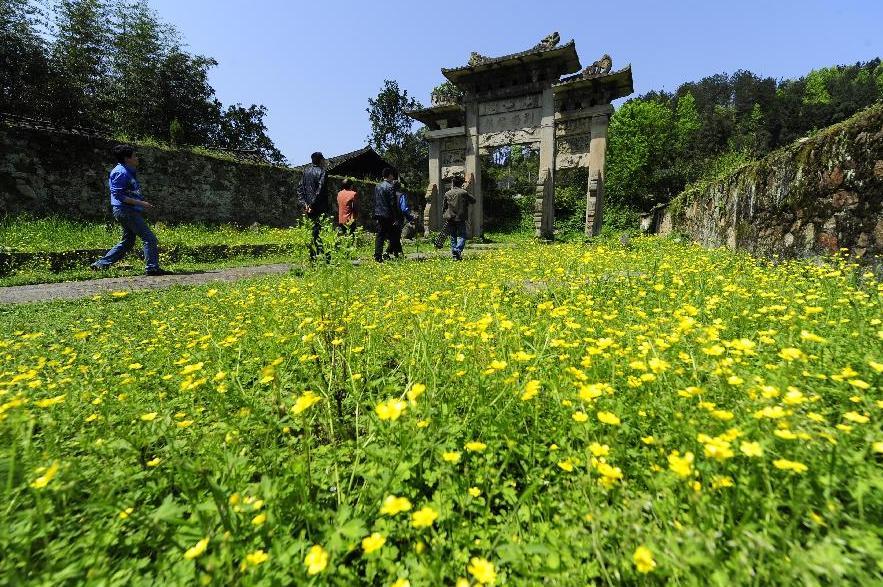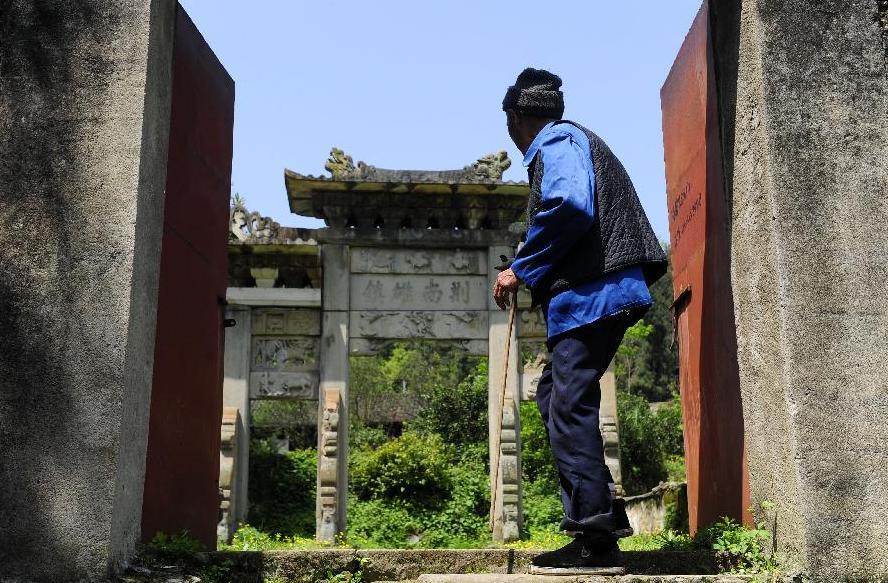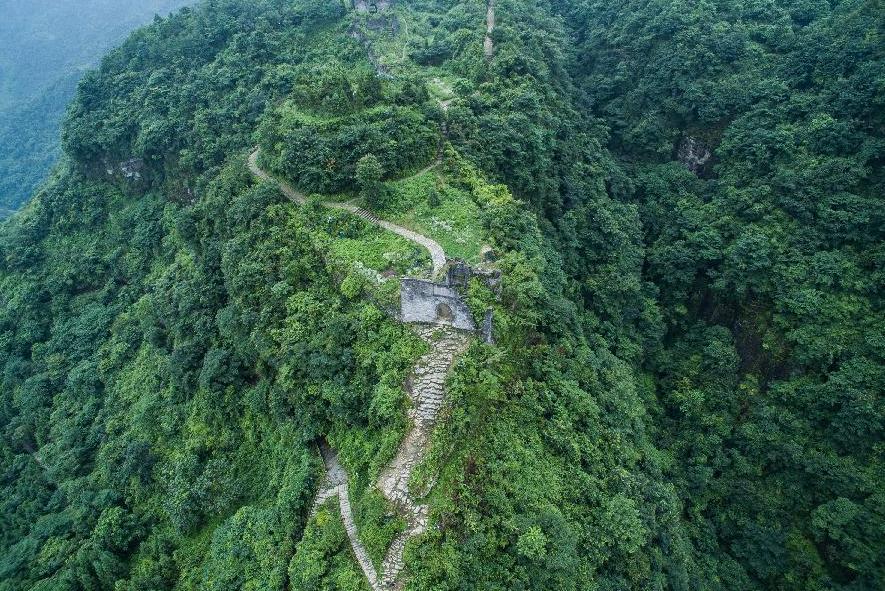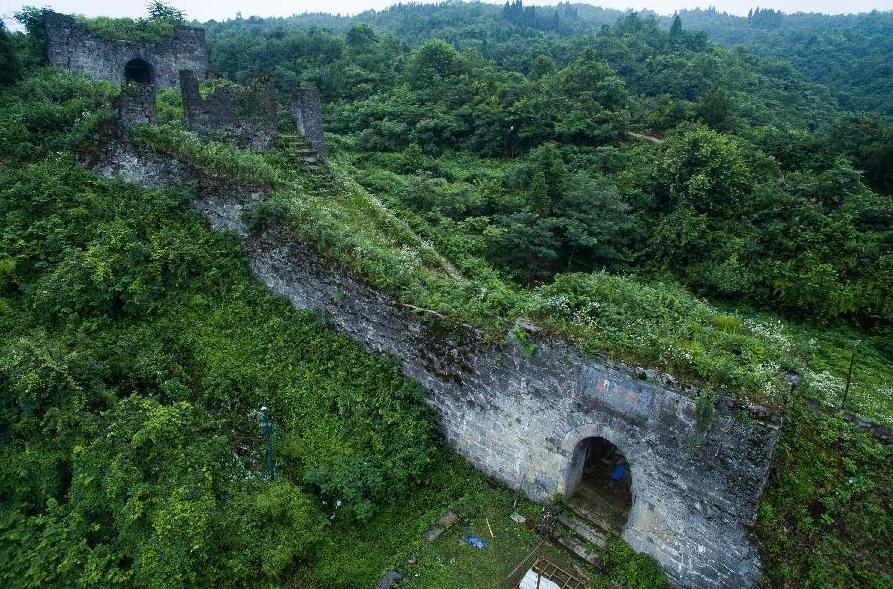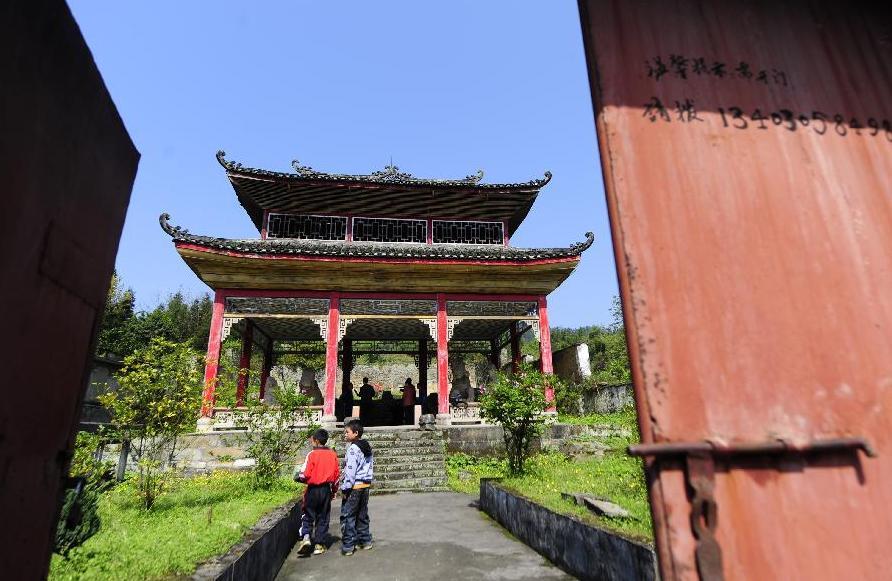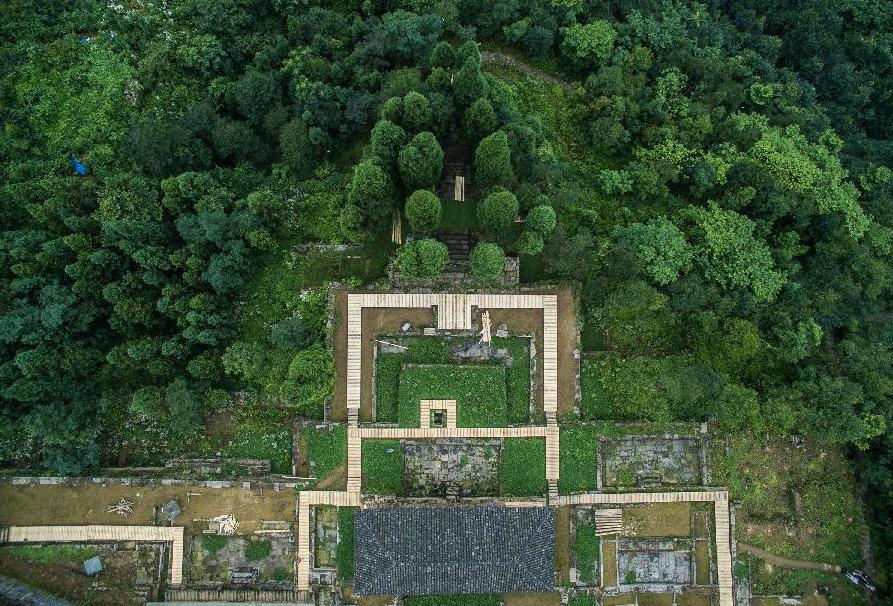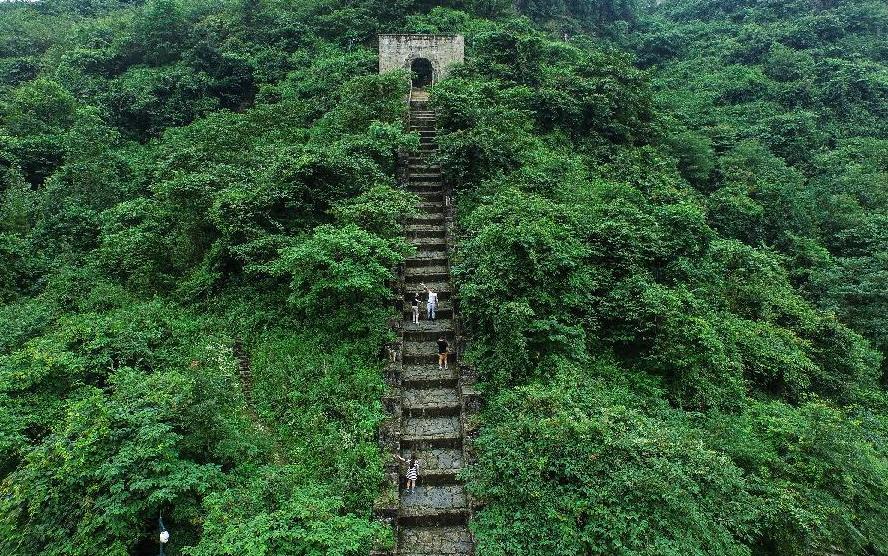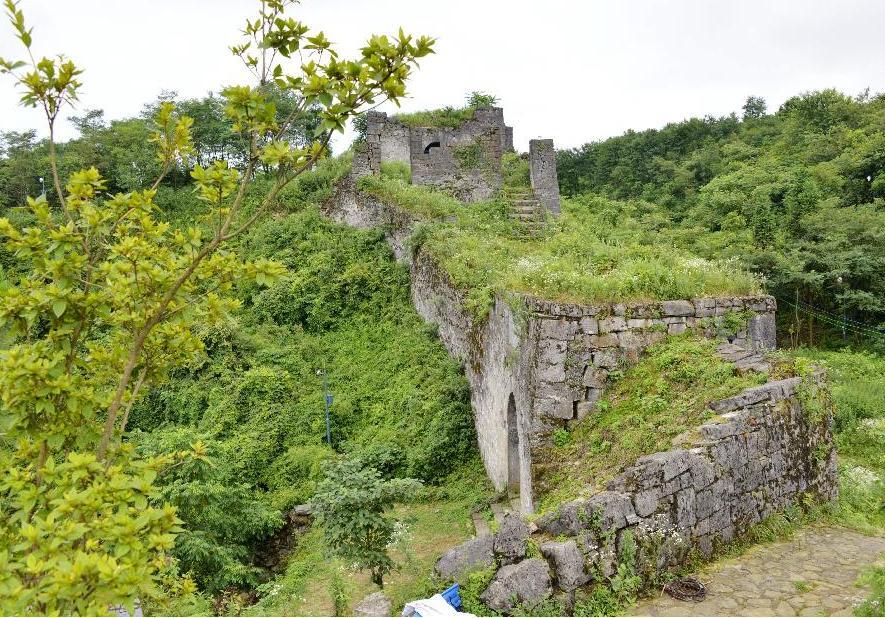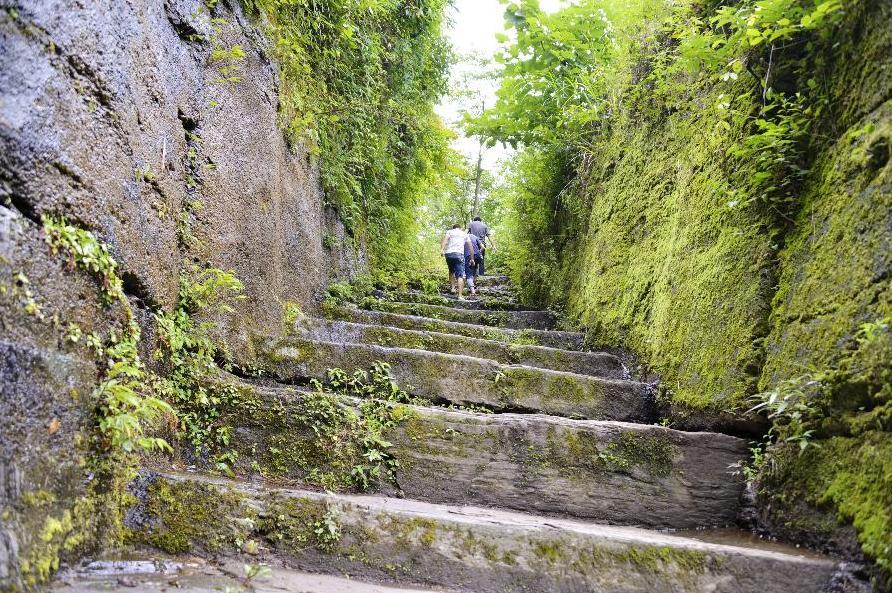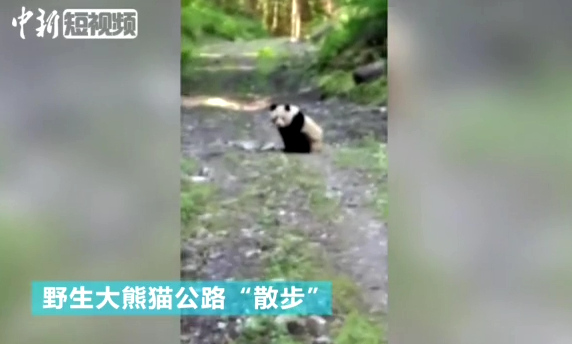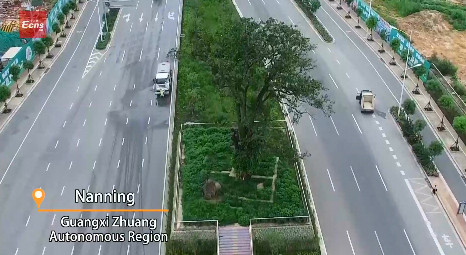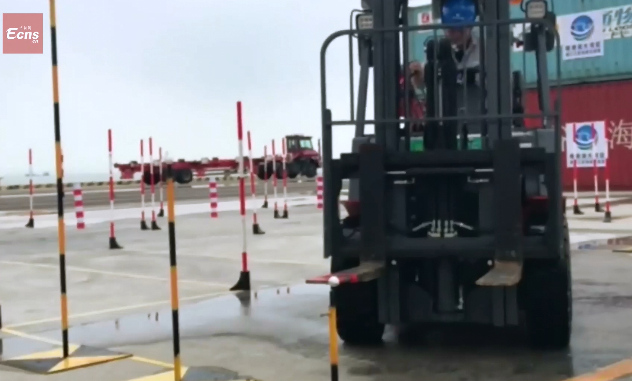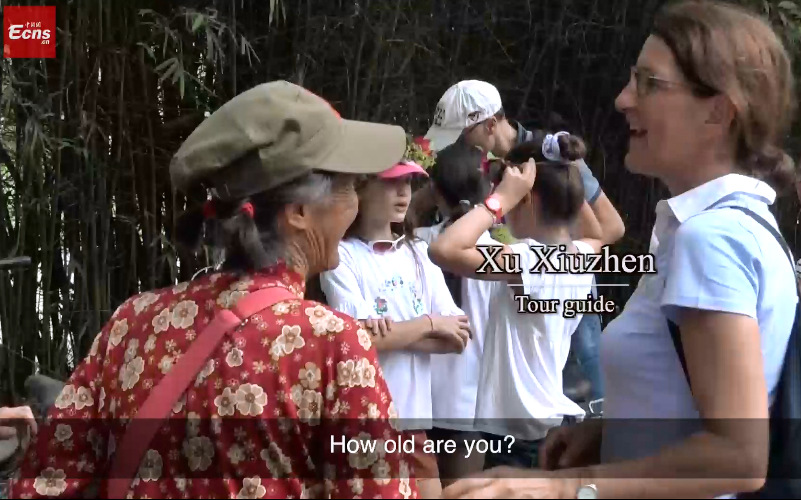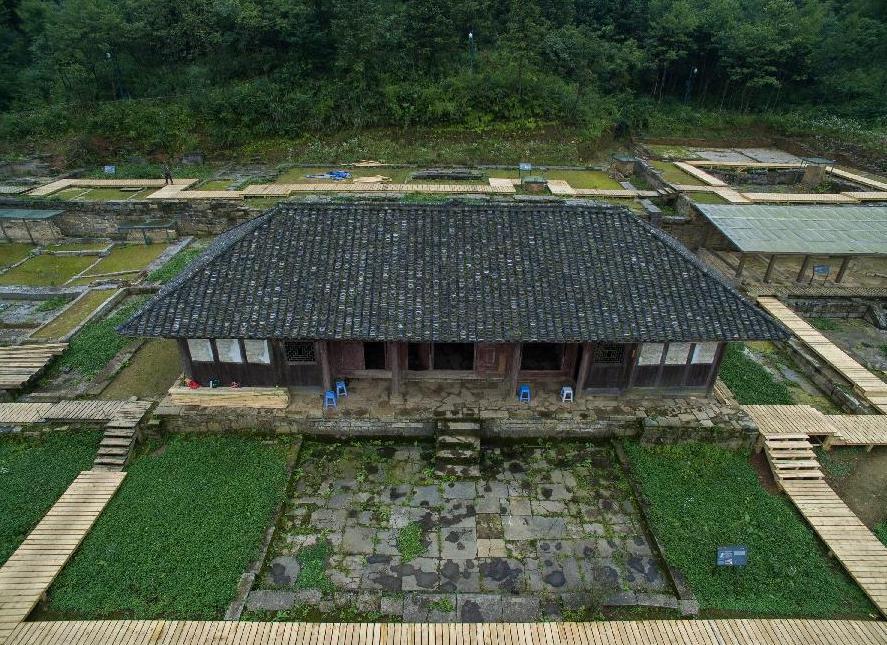
Photo taken on July 3, 2015 shows an aerial view of Hailongtun Fortress in southwest China's Guizhou Province. Tusi sites -- the remains of an ancient political system adopted by Chinese emperors to govern ethnic minority regions in south-central and southwest China -- were inscribed in the World Heritage List on Saturday. The inscribed sites, located in mountainous areas, are Laosicheng in Hunan Province, Tangya in Hubei Province and Hailongtun Fortress in Guizhou Province. Tusi literally means hereditary tribal headmen appointed by Chinese emperors to govern the often unruly ethnic minority regions in the central and western parts of south China, where the specific tribal governance system was adopted from the 13th to the early 20th century. (Photo: Xinhua/Liu Xu)






